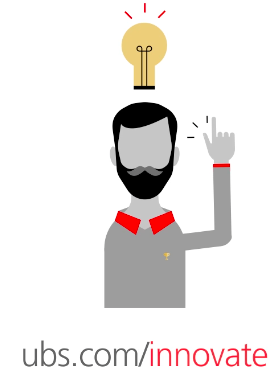A few weeks ago, the Swiss bank UBS launched a Fintech competition “The future of Finance Challenge” in search of innovative ideas and solutions that will support the transformation of the banking industry.
A few weeks ago, the Swiss bank UBS launched a fintech competition “The future of Finance Challenge” in

search of innovative ideas and solutions that will support the transformation of the banking industry. At the launch, Global CIO of UBS Oliver Bussmann said it was critical for UBS to work in collaboration with the fintech community, because he recognised that banks can learn a lot from entrepreneurs and startups. For those who choose to participate in the competition UBS is offering cash prizes and accelerator places worth $300,000 plus more than 300 hours of dedicated coaching from UBS mentors and partners. The bank is looking for help in four broad areas that are summarised in one of the competition’s first tweets: #fintech #startups can your idea help banks in operating efficiency?
The first thing that comes to mind is: what took this banking giant so long? This is what the most innovative global competitors have done for years and we even hear voices talking about “An Accelerator Bubble”. The second thing is: what if this approach to innovating a bank is wrong?
For the last three or four years we have seen thousands and thousands of startups all over the world pitching for their lives – being evaluated by banks, and later coached and mentored by banks. What most banks are looking for is clearly improved efficiency in their processes. They are not for a moment questioning their own core business! Maybe they should.
In 2012, one of the strongest brands in history, Kodak, went bankrupt and their portfolio of patents was sold for $500 million. The company that once had an almost 90% market share in film and cameras hadn’t been able to imagine what digital photography and mobile phones could do to their business. In the same year 2012, Instagram was sold for twice as much, $1 billion, to Facebook and they weren’t selling anything – they just shared digital images for free.
Can you imagine Instagram’s founders Kevin Systrom and Mike Krieger pitching in front of a Kodak panel that is looking for ideas that will make operations more efficient in 1996 when the company peaked with $16 billion in revenue?
I think they would have been sent home and even if they had been accepted for a Kodak incubator they would have been mentored to death.
This is why I think the banking industry should question what it is asking fintech to do. Instagram won over a mighty opponent because it suggested radical innovation and asked questions like: which services are not offered today? Are there customers we have not thought of? How can we give the market something completely new?
Maybe bankers need mentoring from startups more than the opposite[box type=”shadow” align=”” class=”” width=””]Nils Elmark
Consulting futurist, Bankinglab.london[/box].




